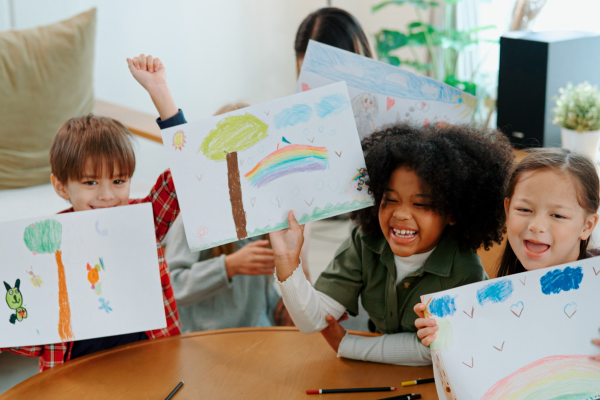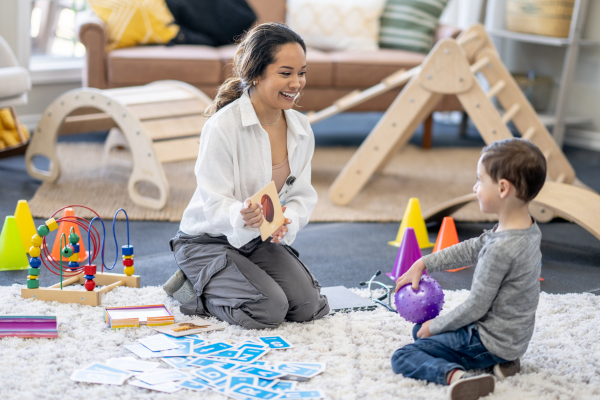
As an educator in the world of child development, I’ve witnessed countless parents navigate the exciting, yet often overwhelming, journey of their child’s development. While the focus naturally falls on academic achievement, a nagging question lingers in the back of their minds: “Is my child prepared for life beyond the classroom?”
The answer lies in a concept that goes beyond rote memorization and standardized tests: essential life skills. These are the abilities that empower children to navigate daily tasks, build strong relationships, and thrive in an ever-changing world. While academic success is undeniably important, nurturing these skills alongside it creates a foundation for well-rounded, adaptable individuals.
Imagine the joy on your child’s face when they can confidently pack their own backpack for school, feeling a sense of accomplishment and independence. Picture the relief of seeing them navigate a social conflict with a friend using effective communication skills they’ve learned. These are just a few examples of how essential life skills empower children to take ownership of their lives and build resilience in the face of challenges.
Why are Life Skills Important?
So, why exactly are life skills so crucial for a child’s development? Here’s a closer look at the impact they have:
1.Building Independence and Confidence

Life skills empower children to tackle everyday tasks and challenges with autonomy. From managing their belongings to making simple decisions, these skills foster a sense of accomplishment and boost their confidence. Imagine the pride a child feels when they can independently solve a problem or complete a chore they’ve been practicing. This intrinsic motivation is key to fostering a love of learning that extends far beyond the classroom.
2. Promoting Social and Emotional Learning (SEL)

Essential life skills beautifully intersect with SEL. Conflict resolution, effective communication, and empathy are all valuable tools that can be nurtured through collaborative activities and role-playing scenarios. By learning to navigate social interactions effectively, children build stronger relationships and develop emotional intelligence. Picture a child who can express their feelings assertively during a disagreement, or one who demonstrates empathy towards a classmate going through a tough time. These skills pave the way for positive social interactions and emotional well-being.
3. Preparing for the Future

The world our children will inherit will likely be vastly different from the one we grew up in. Equipping them with critical thinking skills, problem-solving abilities, and the capacity for lifelong learning allows them to adapt to change and thrive in an ever-evolving world. Imagine your child confidently approaching a new challenge, breaking it down into manageable steps, and finding creative solutions. These are the skills that will empower them to navigate an uncertain future and become successful individuals.
How to Nurture Life Skills in Your Child:
The good news is that life skills can be nurtured from a young age, right within the familiar routines of daily life. Here are some practical tips you can incorporate:
Create a Safe Space for Exploration: Provide opportunities for your child to explore their environment safely and independently. This could involve setting up age-appropriate play areas, allowing them to help with simple chores, or encouraging them to make choices within safe boundaries.
Embrace Everyday Learning Opportunities: Turn everyday routines into teachable moments. Involve children in age-appropriate chores, allowing them to practice skills like sorting laundry or setting the table. Encourage them to express their opinions during discussions and provide opportunities for them to make simple choices, like picking out their clothes or deciding on a healthy snack.
Incorporate Play-Based Learning: Play is a child’s natural language of learning. Engage in open-ended play alongside your child, encouraging pretend play, storytelling, and collaborative games. These activities naturally foster creativity, problem-solving skills, and communication.
Model Effective Communication: Children are keen observers who learn by example. Model effective communication skills by actively listening to your child, expressing your emotions clearly, and resolving conflicts peacefully. This sets the stage for them to develop their own communication skills and navigate social situations constructively.
➡️ ❌Stop asking questions
Questions test knowledge, NOT teach. Our little ones are still learning. Imagine you’re just learning something and someone constantly tests you, it’s not going to be fun or motivating!
➡️ ❌Stop giving directions
Directions are instructions like “give me blue” or “put it on top”. Follow your child’s lead – stop telling them what to do and instead follow what they want to do instead. That way your child is initiating, and you are responding. They feel encouraged and validated. Reciprocal back-and-forth communication (initiated by your little one) is what we are aiming for.
➡️✅Start commenting
Comments are the thoughts, actions and feelings that you narrate out. For example, “the car is sliding down. wee!” or “I think the horse is hungry. He is looking for something to eat”.
🌟Here’s a little tip: if you want to ask a question, DON’T. Instead, change it to a comment.
For example,You may want to ask “what is the horsey doing?”. Instead, comment it “I think the horsey is eating grass. nomnomnom” OR You may want to say “Come play the slide with me”. Instead, comment “I want to play the slide, it looks so fun!” You may want to ask “how many horses are there?”. Instead, comment “Hmm, I wonder how many horses there are. 1… 2… (pause)”
Building a Foundation for Success

At ONE Intervention Centre, we believe that a child’s development goes beyond academics. Our Early Intervention Program for Infants and Children (EIPIC) and School Readiness Program are designed to nurture essential life skills alongside cognitive and academic development. Through play-based learning activities, social interaction opportunities, and a focus on emotional well-being, we create a stimulating environment where children can thrive.
Contact us today to learn more about programs. Let’s work together to help your child blossom and reach their full potential!
Visit our website, www.oneintervention.org, to access a wealth of resources on early childhood development. We believe that every child deserves the chance to reach their full potential. You can also find us on Instagram and Facebook @oneintervention
